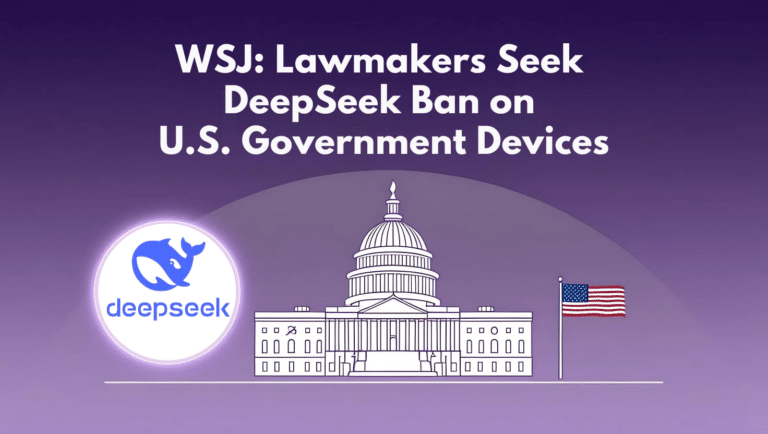Data Privacy Concerns Amid DeepSeek’s Rise
AI training data has become a major concern as DeepSeek reached the top spot on the App Store, sparking debates about data privacy and national security. In a timely CNBC interview amid the DeepSeek controversy, Feroot Security CEO Ivan Tsarynny highlighted the critical intersection of data collection, AI development, and security risks. He emphasized how the data collected through apps plays a crucial role in AI advancements, raising further concerns about digital privacy.

The Four Pillars of AI Development
Tsarynny emphasized that AI development relies on four crucial pillars: energy, processing power, human engineering, and most critically, training data. He particularly stressed the value of English-language data in AI development, noting that current information is especially precious for AI training.
The Value of English-Language Data
“What’s really important and not being appreciated as much yet is the value of English-speaking information,” Tsarynny explained. “The data collected through apps and tracking pixels is very current, making it particularly valuable for AI training and potential weaponization.”
Beyond Mobile Applications
The security expert outlined how data collection extends beyond mobile applications to website tracking technologies. These tools can capture real-time user activities, potentially feeding into AI training systems. “When you look at something on a website, they are seeing it, and they can be using that to fine-tune recommendations or potentially weaponize it,” Tsarynny warned.
Regulatory Landscape and Chinese Companies
Addressing the regulatory landscape, Tsarynny pointed out the complex relationship between Chinese companies and government authorities. “According to Chinese law, data collected by companies associated with China can be transferred to the Chinese government,” he noted, highlighting the potential national security implications.
The Currency of Data
The interview emphasized a critical aspect of AI development: the importance of current data. “Just like in financial markets, you don’t want to be making investment decisions based on outdated data,” Tsarynny explained. “The same applies to AI – current information is crucial for accuracy and effectiveness.”
Implications for Users and National Security
As users grapple with decisions about app usage and digital privacy, Tsarynny advocated for informed personal choice while acknowledging the broader implications for national security and AI development. His insights underscore the growing need for awareness about how everyday digital interactions could potentially influence global AI advancement and competition.
This discussion comes at a crucial time as policymakers and industry leaders continue to debate the balance between technological innovation and data privacy, particularly in the context of international AI competition.


